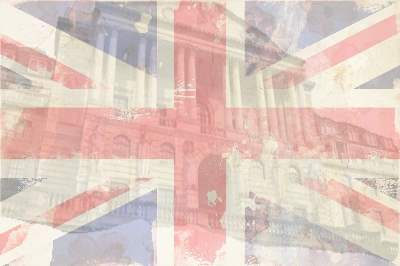UK In Real Trouble Budget Predictions 2017
Published / Last Updated on 06/10/2017

UK In Real Trouble Budget Predictions.
Headlines this week from the Guardian on 03/10/17 “IMF: We’re heading for a crash” and the same day, Press Association “UK construction now in recession” added to by the Financial Times on 05/10/17 “UK public finances face a bloodbath” have led us today to look forward to the Chancellors Budget next month.
Wednesday 22nd November is Budget Day and don’t forget the Autumn Budget is now the MAIN budget and not simply the Chancellor’s Autumn Statement, it is the March Budget that will no longer be the main budget anymore.
Macro-Economic Nightmare Scenario
Firstly, the IMF suggests we are heading for a crash due to concerns about global debt. It was toxic mortgage debt that caused the Credit Crunch Crisis ten years ago. Now, it is personal debt that various governments have failed to control and pin back lending to allow economies to falsely flourish driven by consumer debt spending. Europe has €1,000,000,000,000 debt, the Bank of England has ordered banks to deliver plans on how it will ride out another financial crisis. Italian Banks are on the verge of collapse due to mainly unsecured public debt and China is now taking action to try and stop borrowing in China, also at record levels, that flows out of China to buy businesses all over the World, you only have to look at how many football clubs are now Chinese owned, let alone other industries. Banks cannot flourish without higher interest rates, so they lend money they do not have to achieve profits. Again no action to control.
The Bank of England is ‘hamstrung” on interest rates. Higher interest rates will strengthen the pound meaning British exports become more expensive overseas and will also curb consumer spending, reducing inflation but also slowing the economy down. Higher interest rates will mean higher borrowing costs for businesses, construction has already slowed down, they will also slow down investment and development in other sectors.
The failure to make headway in Brexit negotiations also means businesses are unwilling to invest when they do not know what the future will look like. Hammond’s last budget ‘created’ a £25bn Brexit ‘buffer’ fund, has already been wiped out by 2/3rds according to the Financial Times. U-turns were made on increasing self-employed National Insurance Contributions meaning lower revenues, the economy is slowing meaning lower tax revenues and productivity is down, more people employed but producing less and less efficiently.
What options does Chancellor Phillip Hammond have in his Budget?
The Chancellor has little option but to cut spending and increase taxes. An additional £2bn to build 25,000 more affordable homes is simply not enough given the population is increasing by millions over the coming years is indicative of tightening the purse strings.
Budget Options
The only real options are to tax Middle England and Middle Earners.
Annual Tax on Enveloped Dwellings (ATED)
Residential property owned inside a company to avoid paying stamp duty, as shares are sold rather than the property, now pay a yearly tax if the property is worth £500,000 or more. Reducing the limit to £250,000 or zero will raise more revenue.
Capital Gains Tax
We have recently seen changes to capital gains taxes by reducing tax rates to 10% for basic rate tax payers and 20% for higher rate tax payers with the exception of property gains still taxed at 18% and 28% respectively. Is there a case for a complete rethink on capital gains taxes?
Dividend Allowance
A tax free Dividend Allowance of £5,000 was reduced to £2,000. Could this go? Will taxes on excess dividends by increase to normal income tax rates.
Enterprise Investment Schemes (EIS)
30.00 % tax relief on investments up to £1m per tax year for approved funds that invest in capital in new business ventures. This, fundamentally, is a £300,000 tax break for the superrich. It could be changed.
National Insurance
The self-employed pay lower National Insurance Contributions, small businesses also have a National Insurance ‘Employment Allowance’ to lower . Given the u-turn earlier this year, we suspect self-employed may be safe, but could the Employment Allowance be reversed?
Pension Tax Relief
Huge reforms were suggested by former Chancellor George Osborne to simplify and have a single tax relief rate of 30% on contributions. We believe the benchmark has already been set the Governments Lifetime ISA (LISA) with a 25% bonus on savings whether you use that for a deposit for your first home or in later life as a tax free pension. We suggest this is a very possible move for pension tax relief overall. It will hit higher earners with higher taxes, yet offer a welcome tax relief boost to lower earners.
Stamp Duty
This tax was increased and stamp duty revenues are at record levels given the increases to second property/buy to let stamp duty. That said, property sales are falling and some have made calls for older people to have stamp duty waived when they downsize, this will free up larger houses that pensioners are staying in to younger families meaning more revenue overall as more sales may ensue.
Wealth Tax
Throughout Europe, many countries have a yearly tax on wealth. E.g. in Spain, if you are worth more than €1m, you could pay a yearly tax on the excess between 0.2% and 2.5%. Again, could this be a new tax?